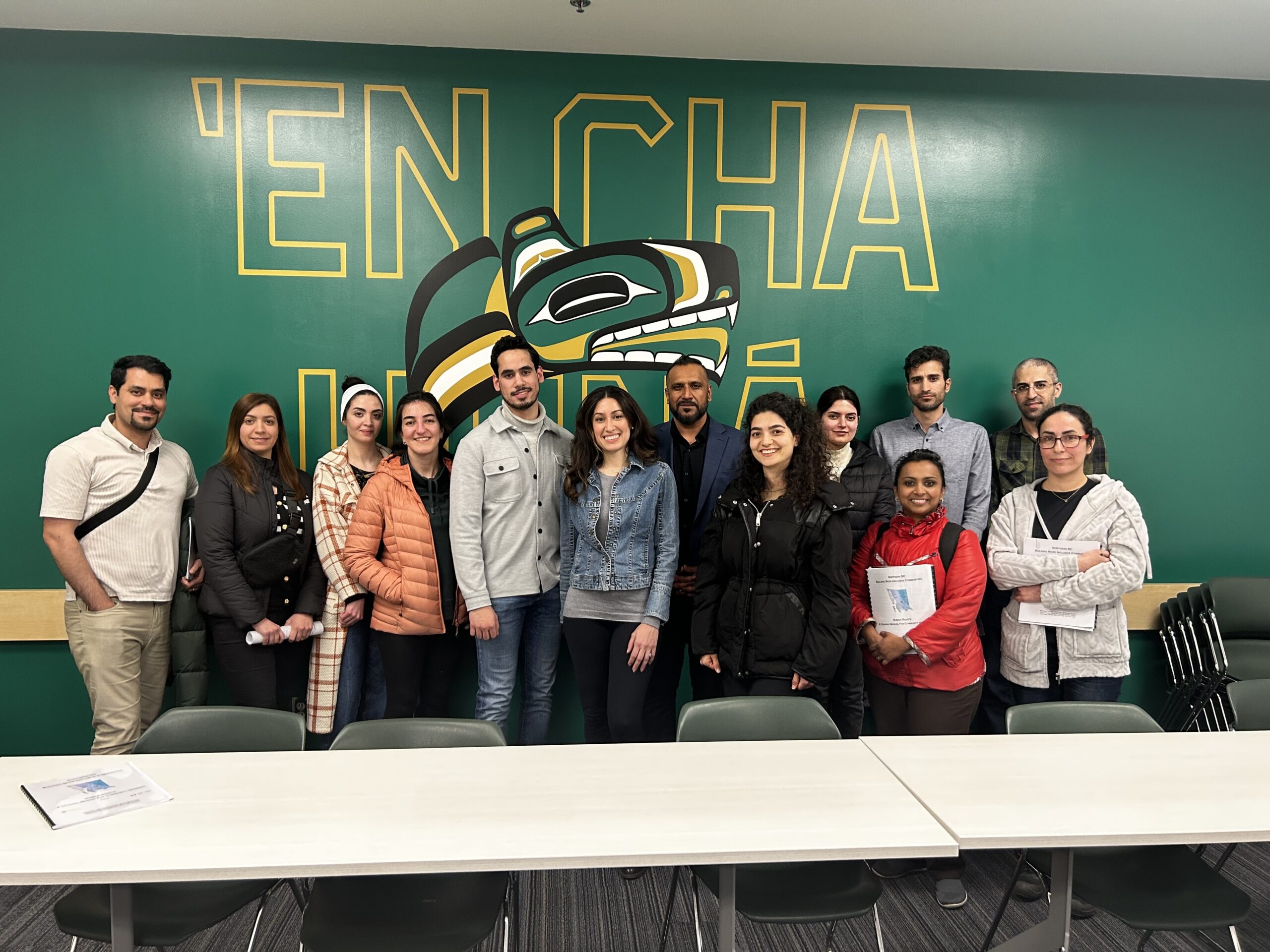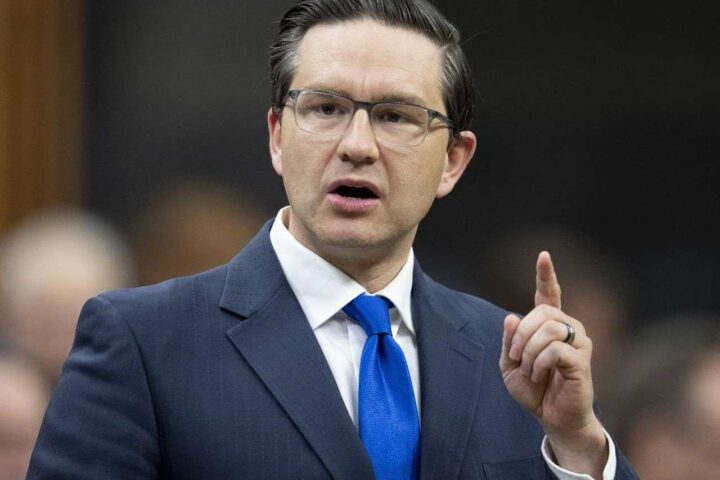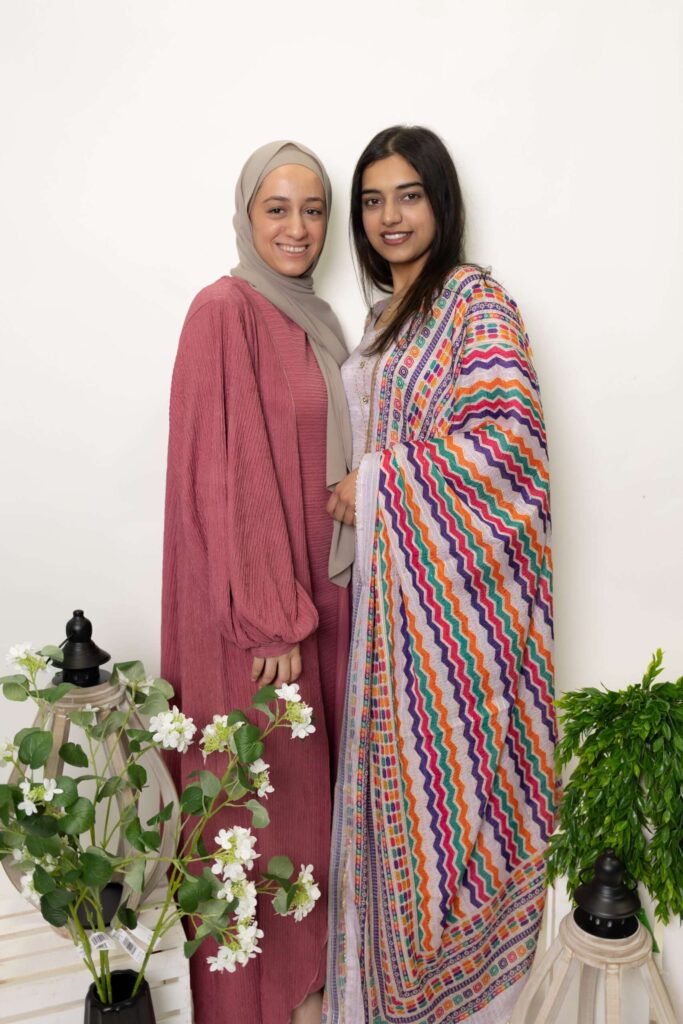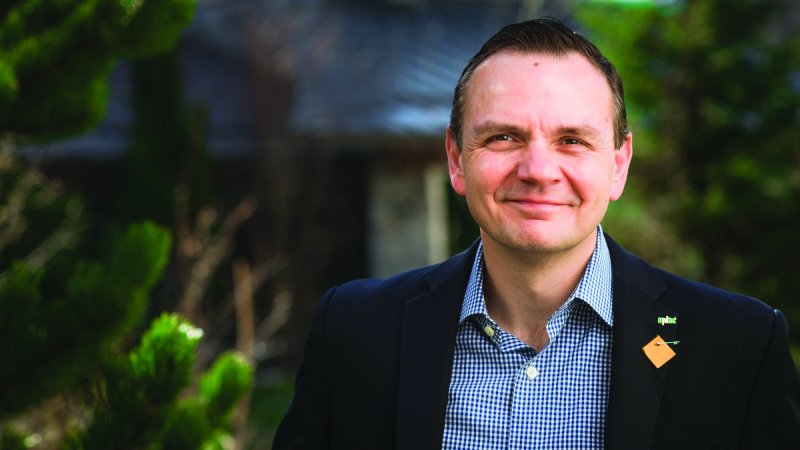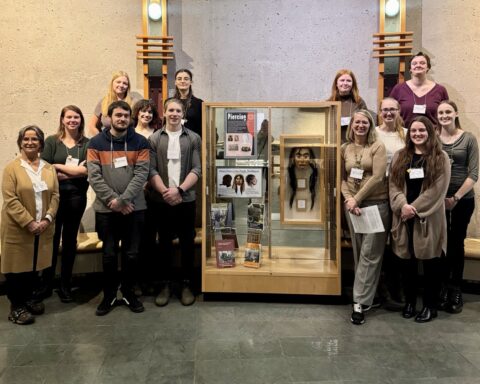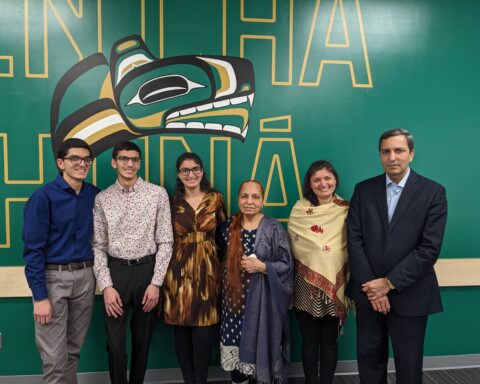On April 5th, UNBC students, alumni, and community members gathered for an informative workshop titled “Education on Human Rights and Legal Rights in Canada, BC.” The event, hosted by the Immigrant and Multicultural Services Society (IMSS) of Prince George and funded by Canadian Heritage and Resilience BC, aimed to equip attendees with the knowledge and tools necessary to defend their rights and combat discrimination (such as age, race, color, ancestry, place of origin, physical or mental disability, sex, gender identity or expression, sexual orientation, religion, marital status, family status, and more). This valuable opportunity, held at UNBC, was estimated to be worth an impressive $4,000, made possible through the generous support of sponsors and a significant discount provided by the featured lawyer, Bobby Deepak. This workshop allowed attendees to gain access to crucial legal knowledge and resources that may have otherwise been out of reach, underscoring the importance of community partnerships in promoting equality and empowering individuals to defend their rights.
As a co-coordinator, participant, and OTE news reporter, I had the privilege of witnessing firsthand the impact of this workshop. Bobby Deepak, a distinguished Human Rights and Labour Law Lawyer with over 20 years of experience, led the session, sharing his expertise on a wide range of topics related to human rights and legal rights in Canada.
Deepak began by defining discrimination as
the unfair treatment or denial of benefits based on protected personal characteristics, such as race, age, family status, disability, religion, or sexual orientation.
He emphasized that discrimination can occur in various areas, including employment, housing, public services, and publications.
During the workshop, Deepak shared a poignant quote by renowned author James Baldwin:
“Not everything that is faced can be changed, but nothing can be changed until it is faced.”
This statement serves as a rallying cry for those who have experienced discrimination, highlighting the necessity of acknowledging and confronting injustice as the first step towards creating a more equitable society.
Deepak explained that while facing discrimination can be challenging and not every instance of discrimination can be immediately changed, it is crucial to recognize and address these issues. By bravely confronting discrimination and using the legal tools and resources available, individuals can take an active role in driving positive change and holding those who engage in discriminatory practices accountable.
This quote resonates with many who have faced discrimination, as it acknowledges the difficulties they may encounter while also empowering them to take action. It serves as a reminder that remaining silent in the face of injustice only perpetuates the problem, and that by speaking out and utilizing the support systems in place, we can work towards creating a more just and inclusive society for all.
At the workshop attendees learned about the BC Human Rights Tribunal, which is the main place to file complaints about discrimination in the province. Deepak explained the steps involved in making a complaint, emphasizing how important it is to gather evidence and file the complaint within one year of the discriminatory incident. He also explained the legal tests used to determine if discrimination has taken place, such as showing that the discrimination likely happened (known as a “prima facie” case) and proving it based on a balance of probabilities (meaning it is more likely than not that the discrimination occurred).
Another important topic covered in the workshop was the duty to accommodate. This means that employers and service providers must make reasonable efforts to meet the needs of individuals with protected characteristics, such as disabilities or religious beliefs, unless doing so would cause undue hardship. This could involve changing work duties, allowing time off for religious observances, or making changes to the physical workspace. Deepak shared examples of successful accommodations and the factors considered when deciding if an accommodation would cause undue hardship. He also discussed the remedies available through the BC Human Rights Tribunal. If the Tribunal finds that a complaint is justified, it has the power to order the discriminatory behavior to stop, make declarations, award money for lost wages and expenses, and require steps or programs to address the discrimination.
Throughout the workshop, Deepak stressed the importance of keeping a record of discrimination incidents, as relying on memory alone can be difficult when making a complaint. He provided a list of valuable resources, including websites like canlii.org for legal information, bchumanrights.ca for the BC Office of the Human Rights Commissioner, and bchrt.bc.ca for the BC Human Rights Tribunal. He also mentioned organizations that offer free legal help, such as the BC Human Rights Clinic and Access Pro Bono (all mentioned at the end of this article).
In conclusion, the “Education on Human Rights and Legal Rights in Canada, BC” workshop was an invaluable experience for all who attended. It provided a comprehensive understanding of discrimination, the complaint process, and the duty to accommodate. By arming ourselves with knowledge and utilizing the resources available to us, we can work together to build a more just and equitable society.
For those who wish to learn more or seek assistance, please keep the following resources in mind. These resources were distributed as a handout and its worth keeping it somewhere in your database, so take a note or take a picture of the following info!
Resources:
Useful Websites:
- canlii.org – Canadian Legal Information Institute. Excellent resource for free access to court and tribunal decisions and legislative documents.
- bclaws.ca – Electronic library for free public access to a comprehensive collection of BC Provincial legislation, civic bylaw content and related policy and legislative materials.
- bchumanrights.ca – BC Office of the Human Rights Commissioner
- bchrt.bc.ca – BC Human Rights Tribunal
- peopleslawschool.ca – People’s Law School. Provides free education and information.
- dialalaw.peopleslawschool.ca – A service provided by the People’s Law School, you can browse by topic for free legal education.
- bchrc.net – BC Human Rights Clinic. Excellent resource for free legal information and representation in some cases.
Some Pro Bono Organizations and Those That Help People With Low Income:
- BC Human Rights Clinic (Community Legal Assistance Society – CLAS). Telephone Info Line provides information on human rights. Available Monday to Friday. Short Service Clinic provides half-hour appointments for information and summary advice, including assistance with complaint drafting (on Mondays and Wednesdays). May provide further legal assistance or representation once a complaint has been accepted by the BC Human Rights Tribunal. Phone: (604) 622-1100 Toll Free: 1-855-685-6222 or Email: infobchrc@clasbc.net Web info: https://bchrc.net/aboutus/about-us/
- The Law Centre. Summary advice and assistance about human rights problems. Help filling out forms. Represent complainants and respondents in BC and Canadian human rights matters. Cannot attend in-person hearings outside the Victoria area. Phone: (250) 385-1221 Email: reception@thelawcentre.ca Web info: https://thelawcentre.ca
- Access Pro Bono: Summary Advice Program. Request a 30-minute summary advice program appointment, including about a BC or Canadian human rights complaint. Phone: (604) 878-7400
- Access Pro Bono: Roster Program. A coordinating lawyer at Access Pro Bono matches a complainant with a pro bono lawyer who is interested in helping with or taking on BC and Canadian human rights matters. A referral from an advocate or lawyer is helpful. Email: roster@accessprobono.ca Web info: http://accessprobono.ca/roster-program
- Access Pro Bono: Lawyer Referral Service. Referrals to private lawyers who provide a free 30-minute consultation. Fees only apply if you decide to retain a lawyer afterward. Phone: (604) 687-3221 to book an appointment. Toll-free: 1-800-663-1919 Book online: https://www.accessprobono.ca/our-proqrams/lawyer-referral-service
As students, it is our responsibility to be informed about our legal rights and to stand up against discrimination in all its forms. This workshop served as a powerful reminder that we have the power to create change and that resources are available to support us in this endeavor.
The event brought together various UNBC clubs and organizations, fostering a sense of unity and collaboration in the fight against discrimination. Attendees left the workshop empowered with the knowledge and tools necessary to advocate for their rights and promote a more inclusive society.
We would like to extend our sincere gratitude to all those who made this workshop possible. Special thanks to Karelya M., the Community Connections Coordinator from the Immigrant and Multicultural Services Society (IMSS), for her instrumental role in organizing and facilitating the event. We also appreciate the efforts of Mahnaz Moloodiyan, a dedicated community volunteer, for connecting us with Karelya and helping to bring this workshop to fruition.
Furthermore, we would like to acknowledge the support provided by various UNBC entities, including the UNBC International Office, NBCGSS, UNBC Northern Women’s Centre, UNBC Iranian Students Association (UISA), UNBC Northern Ismaili Student Association (NISA), and Model United Nation (MUN) UNBC clubs. Their collaboration and support were crucial in making this workshop a success.
Remember, you are not alone in the fight against discrimination. Together, we can create a more inclusive and just society for all.


